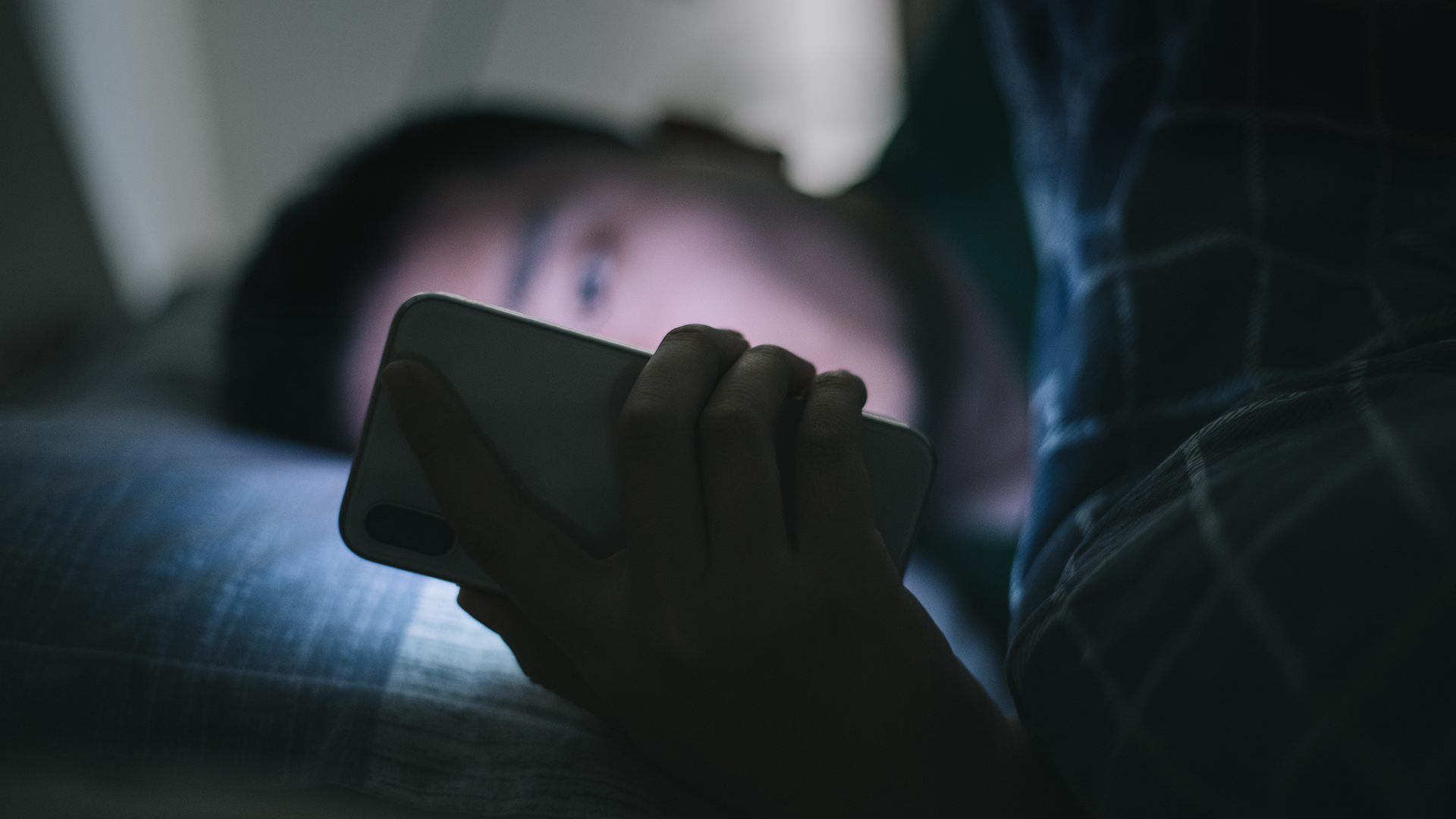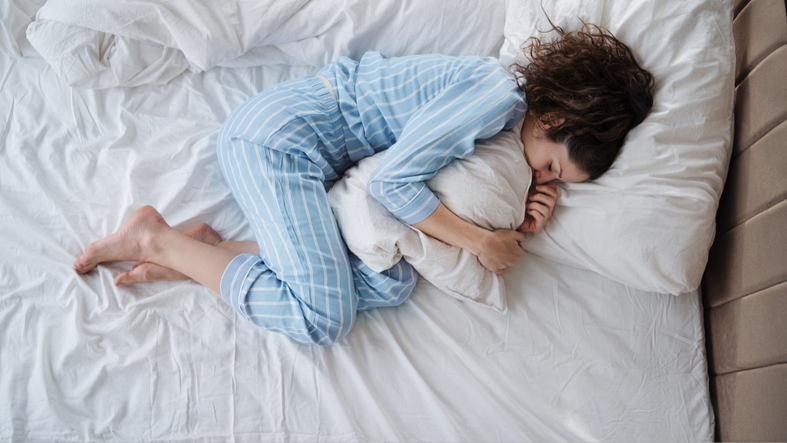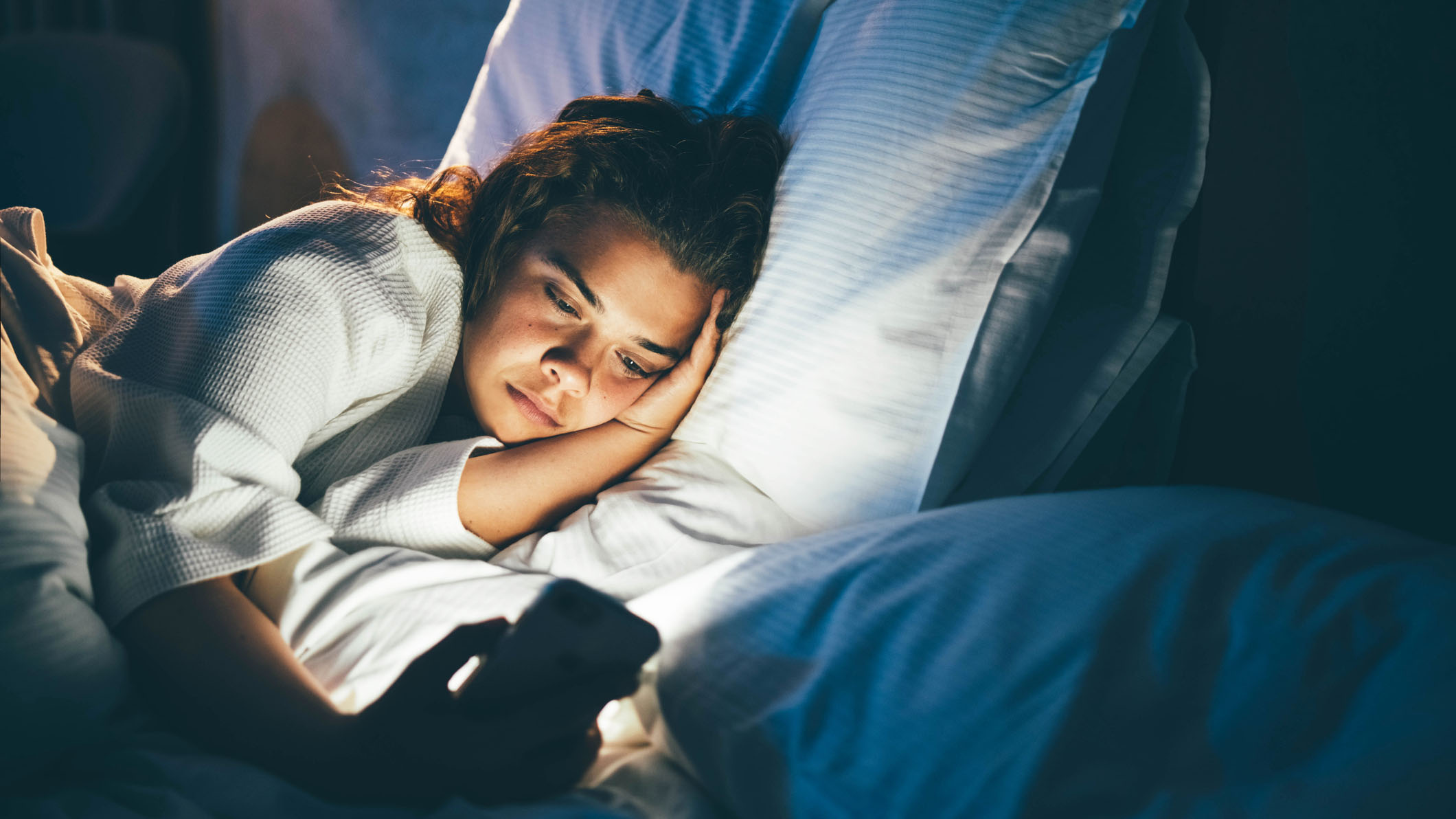I kept waking up at odd times in the night but it stopped once I kicked this common phone habit
Talking to a neuroscientist helped me identify this one habit which saved my sleep

We all know how integral sleep is for our overall mental and physical wellbeing. For someone who loves waking up feeling well-rested after a good night’s sleep, there was a brief period of time when I struggled achieving just that.
I always tend to take my 8-hour sleep very seriously since going to bed is something I look forward to at the end of a long day. But instead of sleeping through the night, recently I started experiencing bad dreams that led to me being wide awake at 3am, then at 4am and later at 6am. This happened every night for a couple of weeks at different intervals, which left me utterly exhausted. These sudden nighttime wakings really drained me and I knew I needed to find a solution.
In a conversation with a leading neuroscientist, I realized that a huge part of it was because of my phone. If sleeping better is one of your New Year resolutions for 2025, there is one common phone habit you need to kick to help you achieve your goal and get a good night’s rest. Here's how I stopped waking up and started sleeping through the night again.
Why I kept waking up at 3am, 4am and 6am
Dr Lindsay Browning, chartered psychologist, neuroscientist and founder of Trouble Sleeping, a leading sleep disorder clinic, helped me break down my sleep issue and deep dive into what was happening.
We started unraveling this sleep-puzzle only to find out that while my recent house move and the new environment were likely to blame for these nighttime awakenings, a silly phone habit of mine was making it a lot worse.
Reaching out to a phone and checking the time is the first thing most of us tend to do once we’re up and awake — and this is exactly what landed me into trouble.
Every time I woke up, I reached for my phone beside me to check the time. When I saw the bright screen shouting 2am or 3am at me, I inevitably felt stress and panic. My mind, by default, would then start making a note of all the things I had planned the next day, creating endless to-do lists and triggering my anxiety.
Sign up to get the BEST of Tom's Guide direct to your inbox.
Get instant access to breaking news, the hottest reviews, great deals and helpful tips.

How putting my phone on DND stopped me from waking up in the night
So, I stopped checking my phone. It is really tempting to check your messages and notifications once your mind is awake, but this can worsen your sleeplessness.
After my session with Dr Browning, the important step I had to take to save my sleep was to fight the urge to scroll through my phone or check the time and focus on relaxing. To do this, I kept it on Do Not Disturb mode. This meant even if I did want to check the time, I wouldn't see any anxiety-inducing notifications. I also kept my phone further away from my bed.
If you rely on having your phone close for an alarm or an emergency night light, make sure to keep it on DND mode before you hit the bed. Once the bright light and time-checking was out of the equation, my nighttime wakings became less frequent and soon, a thing of the past.

The affects of screens on sleep quality
“If you check the time when you wake up, it tends to just make you increasingly anxious and frustrated about how little you have slept or how much time is left until morning. Also, you may see messages or emails that are either anxiety producing or lead you to start responding to them, waking you up even further,” says Dr Browning.
Additionally, if you’re someone like me who tends to scroll through social media when awake, know that this habit is doing more harm to your sleep than good. Before you know it, an hour or two can pass, with little time left before the alarm goes off.
Studies have also shown that the bright light from your phone not only stimulates your brain but also suppresses your melatonin (the sleepy hormone) production which throws off your circadian rhythms — your body’s sleep and wake cycle. If left untreated, this can significantly impact your sleep quality and your mental and physical wellbeing.
Aside from the screen itself, the content you consume through your phone can be overstimulating, causing your brain to wake up from its sleepy state. Social media describes that fidgety impulse to keep scrolling as cortisol addiction and the rush of energy from online stressors can contribute to your lack of sleep.

3 additional steps I follow for a good night’s sleep
1. Working on my nighttime routine
I decided to take a second look at how I utilize my time between work and hitting the bed. Focus was shifted from scrolling through my phone to taking up activities to relax my body and mind. A warm shower works especially well on chilly nights, while on certain days, I indulge in one of these 3 bedtime drinks which help me fall asleep faster.
2. Not stressing about waking up
This is perhaps the number one rule according to Dr Browning. "The definition of being "awake" versus less deeply asleep is a fine line. At the beginning and end of a sleep cycle we are much closer to consciousness and much more aware of our surroundings and therefore much more likely to wake up briefly," she explains.
It's normal to wake up briefly between sleep cycles, so don't overthink it. You can instead take up any relaxation techniques to simply calm your mind. This will stop your racing thoughts and promote a goodnight's rest.
3. Following best sleep hygiene practices
If you're someone aiming to sleep better this year, the first thing to do is to work on your sleep hygiene. This involves everything from sticking to a consistent sleep schedule, blocking out external distractions like ambient light and noises, to creating a conducive environment to rest.
Ensuring your bed is comfortable is essential. Investing in the best mattress for your needs will help you fall asleep fast and stay asleep. Similarly, sleeping on one of the best pillows for your sleeping position will help you remain comfortable throughout the night and reduce tossing and turning.

Becky is a Sleep Staff Writer at Tom’s Guide covering all things sleep-related including product reviews, research studies, news and explainers. She works on specialist bedding content and is responsible for buyer’s guides like the best pillows for all sleepers and best mattress protectors focusing on popular brands such as Tempur-Pedic, Avocado, Coop Home Goods and more. Becky is a PPA accredited journalist who is keen to explore the intricacies of sleep, its effects on skincare, mental wellbeing and work performance. While not thinking of sleep, she can be seen reading in cosy bookshops or learning about global food culture.
